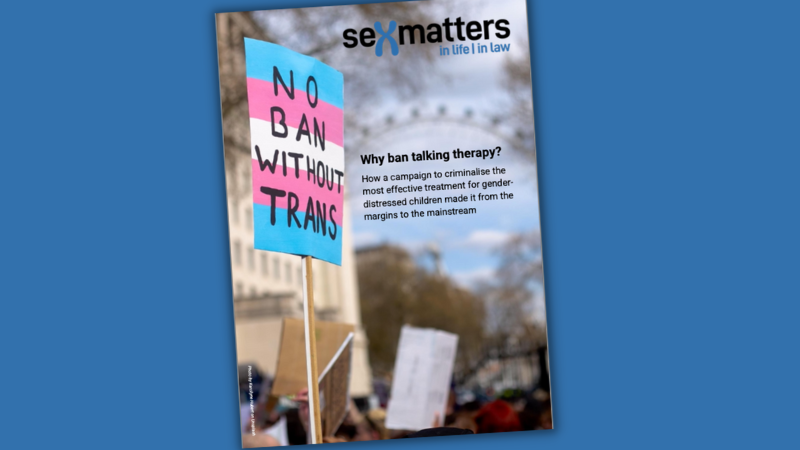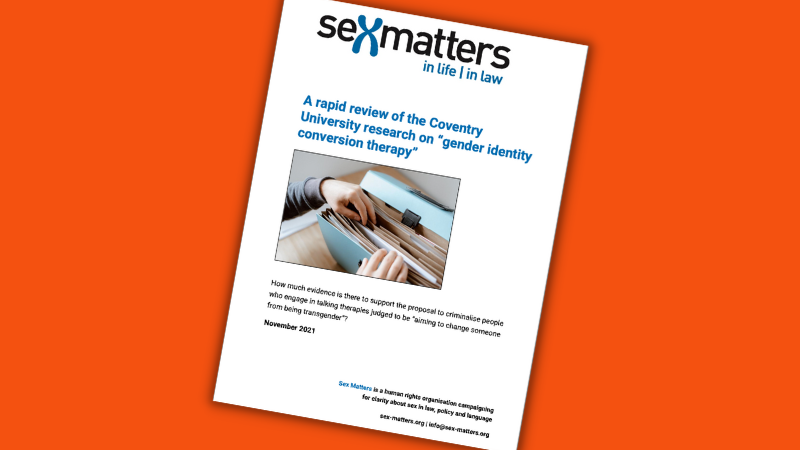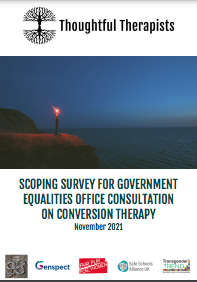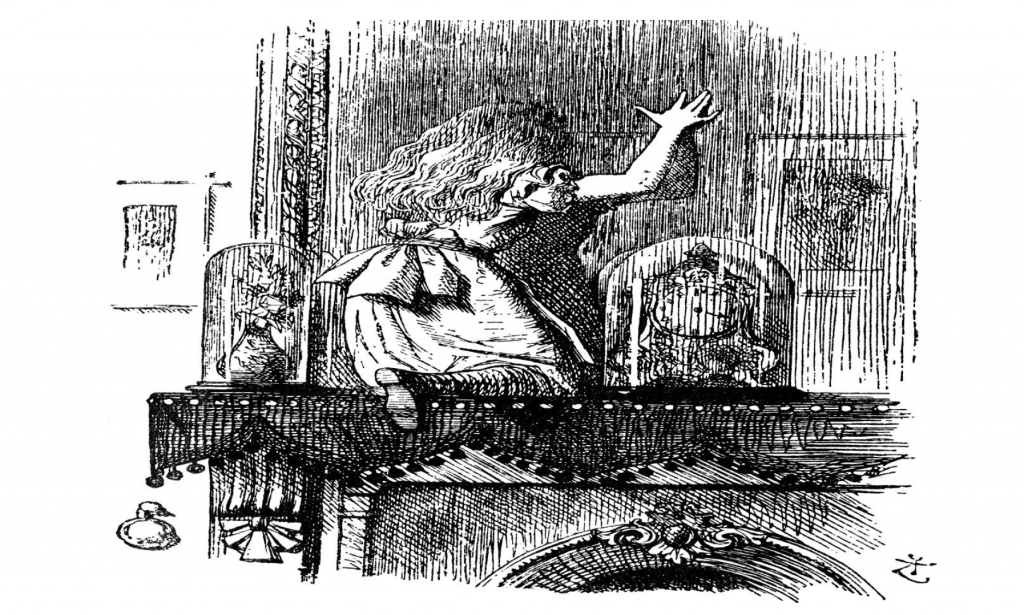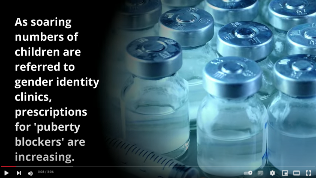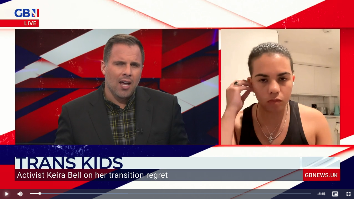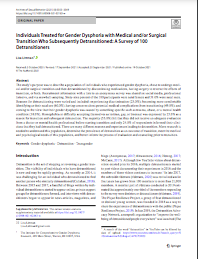Letter to MPs about “gender identity conversion therapy”
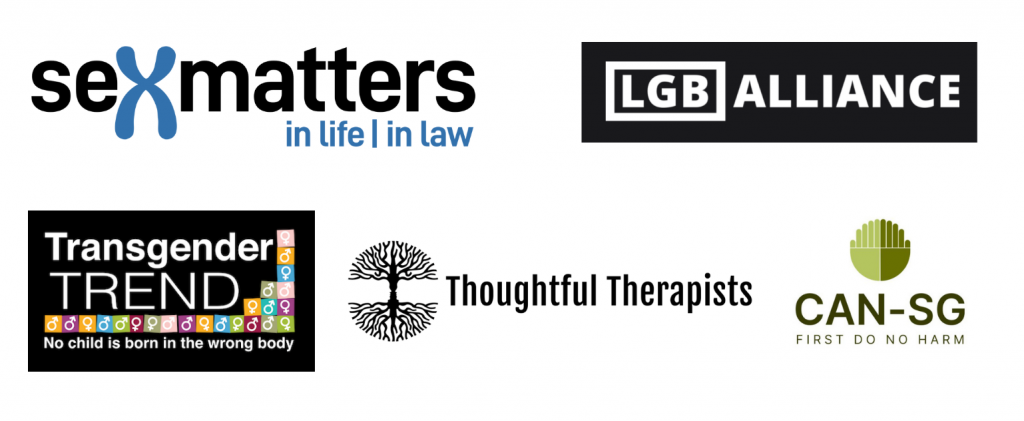
About these organisations | References | Other resources
23rd May 2022
Dear Parliamentarian,
We understand you have received a letter and report from organisations campaigning about “gender identity conversion therapy” – Stonewall, Mermaids, GIRES and the Ozanne Foundation. They claim that there is strong evidence that this is an abusive practice that is prevalent in the UK, and must be stopped urgently with a new criminal law.
We have fact-checked the letter, the report and the associated briefing. We ask you to consider the evidence and question whether a new criminal law in this area would do more harm than good to vulnerable children and young people.
The report you were sent claims to be the best source of evidence for “grave harm” inflicted on the “trans and non-binary community”. But that evidence is remarkably slight: this was a self-selected online survey which found only 39 “gender diverse” people across the UK who said they had undergone something they perceived as conversion therapy in their lifetime.
The report’s findings and recommendations conflict with the findings of the interim report of the Cass Review of gender identity services for children and young people.
Claim: The survey was only excluded from the government’s review of evidence because it was published at a later date.
Fact: When the government commissioned a team at Coventry University to carry out a research review, they did not find any evidence or even any studies defining “gender identity conversion therapy” in the UK. The Equality and Human Rights Commission also noted the lack of evidence.
This survey would not have made a difference to this finding as its methodology does not meet the standard for being published either in an academic journal or by a professional body.
Claim: A ban would not affect doctors and therapists.
Fact: In the definition of “conversion therapy”, the survey included talk therapy by a healthcare professional, and this is what 21 of the respondents identify as their experience. (One characteristic example is a female respondent quoted in the report who identifies as an “asexual man” and cites psychotherapists who “tried to make me feel more comfortable with being a woman and blamed my gender on depression and autism”.) Discussion of such possibilities entails no force or “torture”.
Claim: People who have undergone “GICT” were more likely to report severe mental-health problems.
Fact: Mental-health problems were reported at extremely high levels across all of the participants in the survey who identified as gender diverse, and at only marginally higher rates among the minority who described their experience of therapy as “conversion”.
For example, 79% of gender-diverse respondents overall said they suffered from anxiety or depression; 44% had self harmed and 63% had had suicidal thoughts.
Any legal intervention that makes clinicians afraid of treating these patients for their broad mental-health issues is likely to harm rather than improve their wellbeing.
Claim: There was a “marked increase” in suicidal attempts and ideation between those who had undergone GICT and those who had not.
Fact: The study is not able to make this claim, which suggests a rigorous piece of clinical work that compared two groups: one with and one without treatment. But this was not undertaken, and to suggest that an “increase” in suicidality was found is irresponsible and inaccurate.
Claim: Concerns that the rise in young people seeking to transition might reflect confusion with sexual orientation and an attempt to “trans the gay away” do not stand up to scrutiny.
Fact: The report excluded 28% of survey responses as “transphobic”, including those expressing this concern. Dr Cass identifies that the process of coming to a settled understanding of one’s sexual orientation can resolve gender distress. She has raised concerns about young people being coached by peers and social media not to admit to uncertainty about their sexual orientation.
Claim: There is no need to wait for the Cass Review before legislating because it “is not looking at an area that will be covered by proposed legislation”.
Fact: Dr Hilary Cass notes in her interim review of NHS gender identity services for children that clinicians already feel under pressure not to take the time and care to consider all potential causes for mental health symptoms before settling on treatment focused on gender. She states:
“Primary and secondary care staff have told us that they feel under pressure to adopt an unquestioning affirmative approach and that this is at odds with the standard process of clinical assessment and diagnosis that they have been trained to undertake in all other clinical encounters.”
Given the confidentiality of counselling and psychotherapy, practitioners undertaking exploratory therapy are vulnerable to accusations that they are attempting to “convert” a client who has adopted an attitude of certainty. The case of Dr Az Hakeem demonstrates that this is a very real risk.
Claim: There is an urgent need for a new law to criminalise conversion therapy.
Fact: The campaign to ban “conversion therapy” in relation to gender identity is not based on clinical evidence, but on an ideological commitment to removing medical gatekeeping from both legal sex change and access to surgical or hormonal treatment – enforcing a system based on self-identity.
The tragic experiences of young people such as Keira Bell and Sinead Watson, who made permanent changes to their bodies with hormones and surgery that they now regret, support a need for more talk therapy for people who become convinced that their healthy bodies need changing, rather than threats to criminalise therapists.
Sex Matters has produced a briefing about the campaign to ban “gender identity conversion therapy”. We encourage you to read this alongside Dr Hilary Cass’s interim report.
Yours sincerely
Naomi Cunningham, Sex Matters
Stephanie Davies-Arai, Transgender Trend
Kate Harris, LGB Alliance
James Esses, Thoughtful Therapists
Dr Louise Irvine, Clinical Advisory Network on Sex and Gender
References
Sex Matters (2022). Why ban talking therapy?

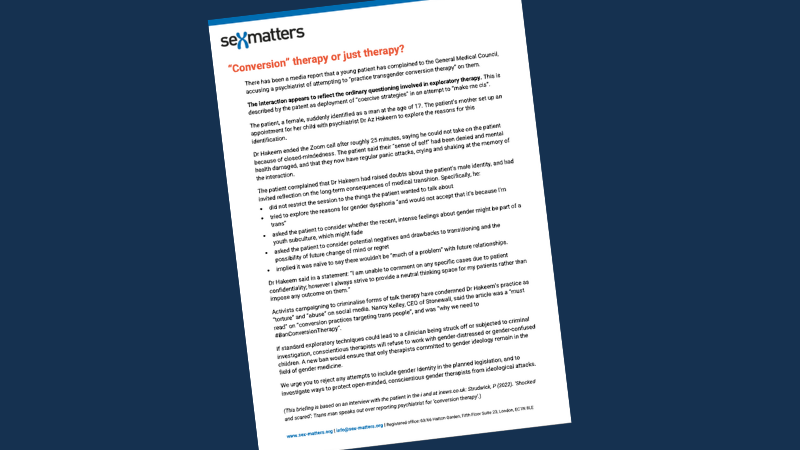
Sex Matters (2022). Briefing: “Conversion therapy” or just therapy? (the case of Dr Az Hakeem)
Other resources
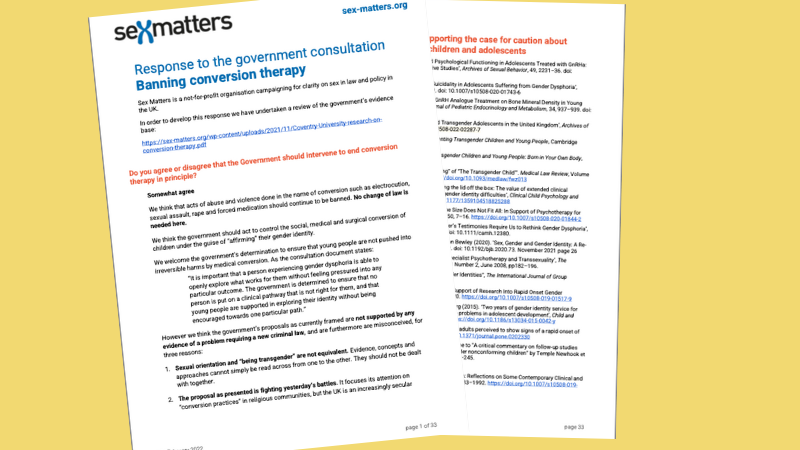
Sex Matters (2022). Response to the government consultation on banning conversion therapy
Thoughtful Therapists: Scoping survey for government equalities office consultation on conversion therapy
LGB Alliance: Why is the NHS sterilising hundred of teenagers? (video, 20th May 2022)
Keira Bell interviewed by GB News, 17th May 2022: “I firmly believe gender dysphoria is a symptom of deeper things going on, it’s as simple as that. There’s no such thing as being born in the wrong body. It’s quite shocking to me when I look back, none of the adults really noticed that or cared.”
Lisa Littman, ‘Individuals Treated for Gender Dysphoria with Medical and/or Surgical Transition Who Subsequently Detransitioned: A Survey of 100 Detransitioners’. Archives of Sexual Behavior (2021) 50:3353–3369.
Griffin, L, Clyde, K, Byng, R, & Bewley, S (2021). ‘Sex, gender and gender identity: A re-evaluation of the evidence’. BJPsych Bulletin,45(5), 291-299. doi:10.1192/bjb.2020.73
About the organisations
| Organisation | Details |
| Sex Matters | A human rights organisation that campaigns and advocates for clarity about sex in law, policy and language. |
| Transgender Trend | The leading UK organisation calling for an evidence-based approach to the treatment of gender dysphoria in children and young people. |
| LGB Alliance | Registered charity formed to advance the interests of lesbians, gay men and bisexuals, and stand up for our right to live as same-sex attracted people without discrimination or disadvantage. |
| Thoughtful Therapists | A group of psychotherapists and counsellors working in the area of gender and gender dysphoria. |
| Clinical Advisory Network on Sex and Gender | A group of UK and Ireland based clinicians calling for greater understanding of the effects of sex and gender in healthcare. |

